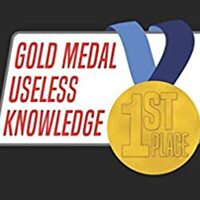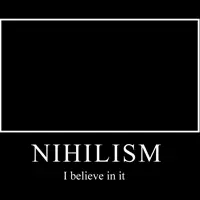Robert Langdon typ osobowości MBTI
Osobowość
"Jaki typ osobowości jest {profilename}? {profilename} jest typem osobowości {mbti} w mbti, {enneagram} - {iv} - {tritype} w enneagram, {big5} w Big 5, {sociionics} in Socionics."
I completed the trilogy late last night. I really like the films. They make me want to sink hours into museum visits. Ah, yes. In this painting I don't know the name of I can clearly make out the astrological symbols by the deliberate brush strokes. See. This blue swirl is the water bearer and this damaged piece of the canvas in the corner is Libra. It's weighing the scales if it wants to be called art. Anyway, I just thought I'd point that out. Now onto typing Robert Langdon. ✅ Note how throughout the films Robert doesn't really stay engaged in real time to check for congruency of external presence of his surroundings, which is why he's almost always partnered up in his quests so someone else can keep him on track. ✅ Note his focus on the external elements leans across time (Ne) instead of in real time (Se), which is what makes it easy for him to be on the same page with the broader narrative unfolding around him, but, it's harder for him to resonate with the moment and take decisive action. Remember in the second film the ripped page scene? Robert was lost from real time. Se is not a strong or conscious function for him. ✅ Note how Robert is good at finding ideas in direction (Ne + Si) as opposed to discovering direction in ideas (Se + Ni). He doesn't role-play who he is before making calculations. Compare Robert to Patrick McKenna (an INFJ) to see this difference in behaviour. Patrick is great at deceiving others because he lacks a *stable* sense of identity that belongs solely to himself because his intuition (that which tells him of possibility) is internal (Ni), whereas Robert has a stable sense of identity because his intuition is external (Ne) making his sense of clarity internal (Si). ✅ Note how Robert admits he hasn't received the gift of faith yet and frames it definitively as a "gift," whereas Patrick has received the faith but lacks integrity with it and acts on suspicions because he doesn't frame it as a gift. It instead is his reality. There's a stark difference in perspective between Patrick and Robert that shows the division between Ni and Si. Robert tends towards perceiving things through an Ne-Si lens. An Example of this responding to Sophie Neveu: Robert Langdon : "You say you hate history. Nobody hates history. They hate their own histories." ✅ Note "own histories" the definite internal clarity that separates subject-sensing from subject-intuiting. His views are framed by his experience framed by his corresponding status. Robert is clearly using Si consciously. ✅ Note how Robert likes to participate logic and treat speculations as speculations. Recall how he gets offended when Sir Leigh Teabing asserts a theory that is unsupported? Consensus is important to Robert because he compartmentalizes piece-by-piece (Ti). He doesn't primarily think by associating facts, but, he primarily thinks by connecting them to what he can verify. ✅ Note even though Robert is not unpleasant to be around he is neither very personable in an active sense. In company he slots nicely into being the reserved polite spectator unless there is something he can correct the record on. Watching him you get the impression he would rather someone else redirect the social setting for him, which indicates repressed object-feeling (Fe). Other characters take up Robert's space without even trying. So, there seems to be a clear lack of Se and a present but inferior use of Fe. Robert Langdon : "There was every orb conceivable on that tomb except one. The orb which fell from the heavens and inspired Newton's life's work. Work that incurred the wrath of the Church... until his dying day. A-P-P-L-E. Apple." All in all, here consensus wins. Based on my observations, Robert Langdon is most probable an INTP.
Biografia
#TomHanks as Robert Langdon
Osobowość correlate

Sophie Neveu

Patrick McKenna

Silas

Sienna Brooks

Leigh Teabing

Bertrand Zobrist

Vittoria Vetra

Harry “The Provost” Sims
















